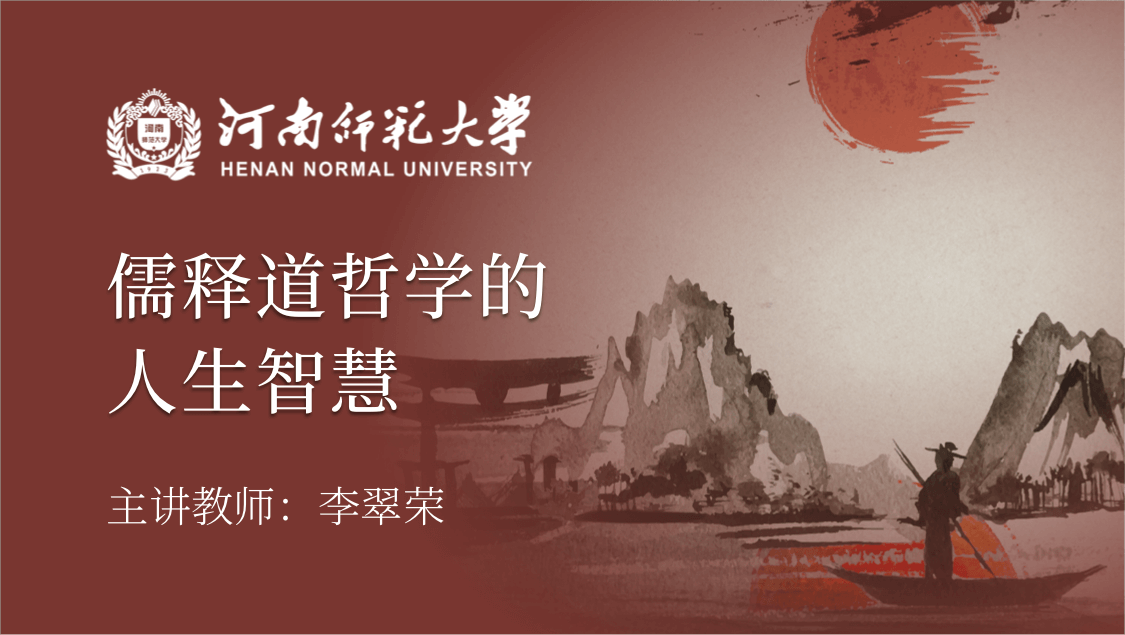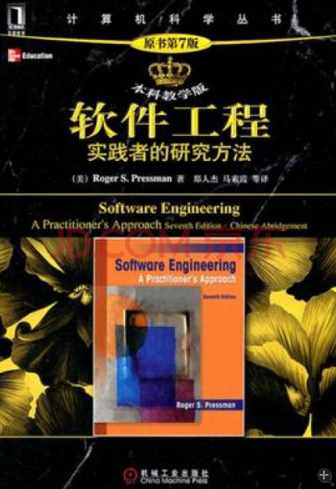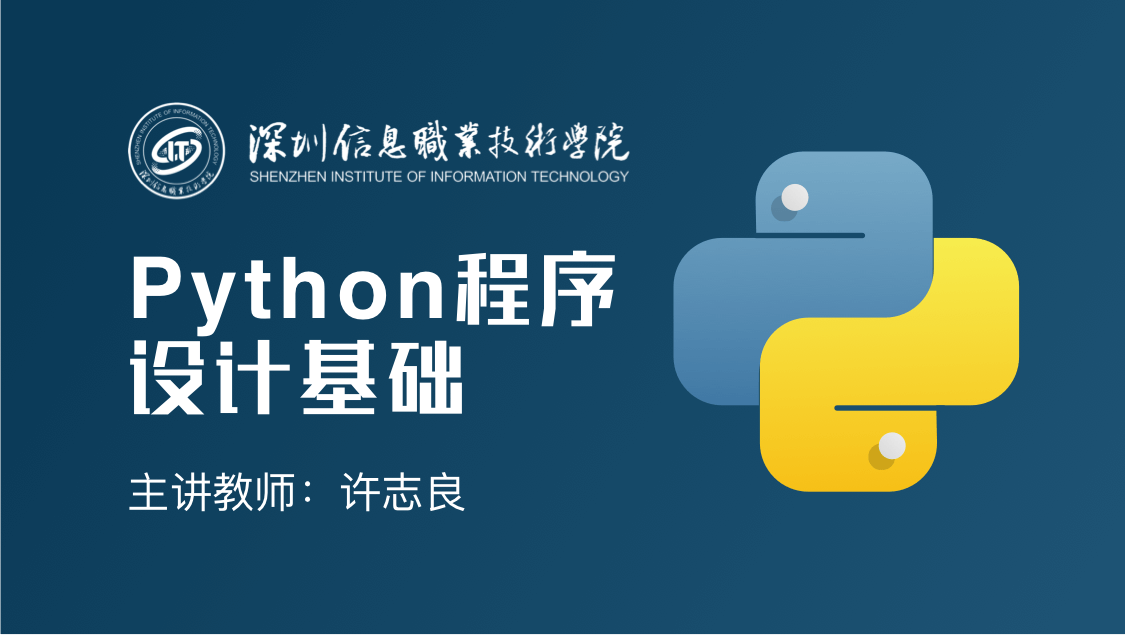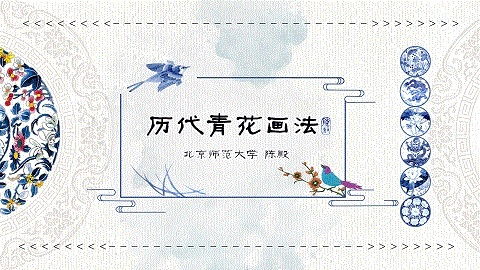
当前课程知识点:庄子寓言及其智慧 > Module 5 On Relativism 论相对 > 5.6 Experts' Views on Zhuangzi's Wisdom 庄子智慧专家谈 > 5.6.1 What is the relationship between Laozi and Zhuangzi? 老子和庄子是何种关系?
在中国文化史上,
我们一般都把老子和庄子并称“老庄”,
我们要
在这次的访谈中讲一讲他们的关系。
庄子继承和发挥了
老子的学说,
他们的学派叫道家,
学习者们可能会好奇
为何称之为道家。
因为他们
研究天地万物的变化。
最后他们的结论是:
天地万物的变化
都是表象,
最本质的东西是道。
天地万物
从哪里来?
人又是从哪里来?
庄子一直推论,
天地之间第一个物质
又从哪里来?
他的结论是:
不是从
物质那里来的。
产生第一个物质的
肯定不是物质,
而是道。
一直不断分解
现在的物质,
最后得到的就是道。
老庄认为,
世界上的万事万物
都是起源于道,
道就是万物的本体。
现在有一些国际上的道家,
比如英国的李约瑟、
日本的汤川秀树、
美国的卡普拉,
都是量子物理学的专家,
他们自称为现在道家,
搞量子学的
研究来研究去,
在他们的研究中,
把物质分解成了分子,
分子再分解成原子,
原子再分解成量子。
量子还是物质,
再分解下去
就没有物质了,
只有一种波的存在,
所谓波粒二象。
他们认为,
道家所讲的“无”
就像那个波一样。
它本身不是物质,
却是一种存在。
所以
老庄的道
就是这样一种东西。
老庄在这一根本点上是相通的。
而在这个的观点基础上,
庄子又提出了
“齐物论”,
所谓“齐物论”,
就是说天地万物都是一样的,
本质都是道,
所以他认为人生
是一种物化现象,
这可以求证于
庄周梦蝶那个寓言中。
除此之外,我们还要看到:
老子被指派到收藏室之史,
即作为
档案管理员
为周王朝的皇家宫廷工作。
换而言之,
他是当时周王朝档案馆
和图书馆的负责人,
所以,老子依然是要听命
并维护周王朝的。
而庄子为了生计,
只肯妥协做了
一个漆园吏。
也许有人会问:
是不是庄子没有
才能不能做官啊?
显然不是。
当时
最大的国家
是楚国,
楚威王曾经派人
去请庄子
过来做楚国的宰相。
庄子对使者说:
一只乌龟死了,
被宰了以后剩下乌龟壳,
那个乌龟壳用来占卜的时候非常灵验,
所以那个乌龟壳放到太庙里面
被视为珍宝;
但另外一只乌龟是活着的,
在泥水里尽情地嬉戏,
你们愿意做哪一只乌龟呢?
楚国的使者
当然愿意做那只活着的乌龟了。
于是庄子就让使者走了,
言外之意就是
他自己也愿意做一只自由自在的乌龟,
何必去做宰相呢?
当楚国的宰相
就像是那只被宰的乌龟
虽然别人都很崇敬
但一点自由都没有,
一点自己的本性都没有。
所以说
庄子是游离于王权之外的。
所以,我们会发现,
庄子和老子的这点不同,
使得老子的“无为”
为的是无所不为,
讲的依然是
君王治理天下的权术。
而庄子的“无为”
是为了精神绝对自由。
-1.1 Lesson 1 Module Guide 单元导学
--1.1.2 Lesson 1 Module Guide
-1.2 Lesson 2 The Man Named Zhuangzi 庄子其人
--1.2.1 Lesson 2 The Man Named Zhuangzi
--1.2.2 Lesson 2 The Man Named Zhuangzi
-1.3 Lesson 3 The Book of Zhuangzi 庄子其书
--1.3.1 Lesson 3 The Book of Zhuangzi
--1.3.2 Lesson 3 The Book of Zhuangzi
-1.4 Lesson 4 The Language of Zhuangzi 庄子其言
--1.4.1 Lesson 4 The Language of Zhuangzi
--1.4.2 Lesson 4 The Language of Zhuangzi
-1.5 Lesson 5 The Ideal Life of Zhuangzi 庄子其志
--1.5.1 Lesson 5 The Ideal Life of Zhuangzi
--1.5.2 Lesson 5 The Ideal Life of Zhuangzi
-1.6 Experts' Views on Zhuangzi's Wisdom 庄子智慧专家谈
--1.6.1 Is zhuangzi negative in nature? 庄子消极吗?
--Interview Question(1)
--1.6.2 Is zhuangzi still inspiring in today's society? 庄子过时了吗?
--Interview Question(2)
-1.7 Students' Understanding of Zhuangzi's Wisdom 庄子智慧学生说
--1.7.1 Zhuangzi's Spiritual World 庄子的精神世界
--1.7.2 The Development of Zhuangzi's Ideas 庄思想发展
--1.7.3 English Translation of Zhuangzi 庄子的英文翻译
--1.7.4 Introduction of Zhuangzi 庄子生平介绍
--1.7.5 Zhuangzi's Home State 庄子出生国
-2.1 Lesson 1 Module Guide 单元导学
--2.1.1 Lesson 1 Module Guide
-2.2 Lesson 2 On Taking Stock 审时度势
--2.2.1 Lesson 2 On Taking Stock
--2.2.2 Lesson 2 On Taking Stock
-2.3 Lesson 3 On Courage 何谓勇气
--2.3.2 Lesson 3 On Courage
-2.4 Lesson 4 On Contentment 知足常乐
--2.4.1 Lesson 4 On Contentment
--2.4.2 Lesson 4 On Contentment
-2.5 Lesson 5 On Modesty 谦虚谨慎
--2.5.2 Lesson 5 On Modesty
-2.6 Experts' Views on Zhuangzi's Wisdom 庄子智慧专家谈
--2.6.1 What’s the relationship between Zhuangzi and Huizi? 惠子与庄子是何关系?
--Interview Question(1)
--2.6.2 How do we understand the debate in Happy Fish? “鱼之乐”辩什么?
--Interview Question(2)
-2.7 Students' Understanding of Zhuangzi's Wisdom 庄子智慧学生说
--2.7.1 Historical Allusions and Cultural Stories 历史典故及文化故事
--2.7.2 Life Wisdom——Yan Hui Refuses Office 颜回拒官的启示
--2.7.3 On Taking Stock 审时度势候时机
--2.7.4 The Enlightenment of Zhuangzi's Fables 庄子的智慧启迪
-【计分贴3 第2单元】Character analysis
-3.1 Lesson 1 Module Guide 单元导学
--3.1.2 Lesson 1 Module Guide
-3.2 Lesson 2 Essence of Learning 习技要义
--3.2.1 Lesson 2 Essence of Learning
--3.2.2 Lesson 2 Essence of Learning
-3.3 Lesson 3 Importance of Practicing 重在实践
--3.3.1 Lesson 3 Importance of Practicing
--3.3.2 Lesson 3 Importance of Practicing
-3.4 Lesson 4 Internal Factors 内因影响
--3.4.1 Lesson 4 Internal Factors
--3.4.2 Lesson 4 Internal Factors
-3.5 Lesson 5 External Factors 外因作用
--3.5.1 Lesson 5 External Factors
--3.5.2 Lesson 5 External Factors
-3.6 Experts' Views on Zhuangzi's Wisdom 庄子智慧专家谈
--3.6.1 What are the differences between Zhuangzi’s and western fables? 庄子寓言与西方寓言有何异同?
--Interview Question(1)
--3.6.2 How is Zhuangzi’s fable different from Mencius’s and Han Feizi’s? 庄子寓言与孟子、韩非子寓言有何异同?
--Interview Question(2)
-3.7 Students' Understanding of Zhuangzi's Wisdom庄子智慧学生说
--3.7.1 Dongshi Imitated a Beauty Blindly 东施效颦
--3.7.2 The Knife of Cook Ting 庖丁解牛
--3.7.3 The Life of Huizi 惠子生平
--3.7.4 The Skill of Chicken Dissection 自编寓言—剖鸡之技
--3.7.5 Zhuangzi and Huizi 庄子与惠子
-征文赛
-征图赛
-4.1 Lesson 1 Module Guide 单元导学
--4.1.2 Lesson 1 Module Guide
-4.2 Lesson 2 Emphasizing the Soul 思想更重要
--4.2.1 Lesson 2 Emphasizing the Soul
--4.2.2 Lesson 2 Emphasizing the Soul
-4.3 Lesson 3 Pursuing Freedom 追求自由
--4.3.1 Lesson 3 Pursuing Freedom
--4.3.2 Lesson 3 Pursuing Freedom
-4.4 Lesson 4 Respecting the Nature 尊重天性
--4.4.1 Lesson 4 Respecting the Nature
--4.4.2 Lesson 4 Respecting the Nature
-4.5 Lesson 5 Searching for Dao 追求道
--4.5.1 Lesson 5 Searching for Dao
--4.5.2 Lesson 5 Searching for Dao
-4.6 Experts' Views on Zhuangzi's Wisdom 庄子智慧专家谈
--4.6.1 What are the 3 forms of “yan” and their relationships? 何为《庄子》三言及其关系?
--Interview Question(1)
--4.6.2 Why does Zhuangzi sing upon his wife's death? 庄子妻死为何鼓盆而歌?
--Interview Question(2)
-4.7 Students' Understanding of Zhuangzi's Wisdom 庄子智慧学生说
--4.7.1 Separation is for Better Reunion 分别是为了更好的重逢
--4.7.3 Respecting the Nature 自编寓言—尊重天性
--4.7.4 Zhuangzi's Wisdom in Life 智慧启迪
-【计分贴7 第4单元】Explore mind maps & character analyses
-5.1 Lesson 1 Module Guide 单元导学
--5.1.1 Lesson 1 Module Guide
-5.2 Lesson 2 Understanding the Rules 明其理
--5.2.1 Lesson 2 Understanding the Rules
--5.2.2 Lesson 2 Understanding the Rules
-5.3 Lesson 3 Transferring the Use 广其用
--5.3.1 Lesson 3 Transferring the Use
--5.3.2 Lesson 3 Transferring the Use
-5.4 Lesson 4 Perceiving the Self 接纳自我
--5.4.1 Lesson 4 Perceiving the Self
--5.4.2 Lesson 4 Perceiving the Self
-5.5 Lesson 5 Accepting the Others 容纳他人
--5.5.1 Lesson 5 Accepting the Others
--5.5.2 Lesson 5 Accepting the Others
-5.6 Experts' Views on Zhuangzi's Wisdom 庄子智慧专家谈
--5.6.1 What is the relationship between Laozi and Zhuangzi? 老子和庄子是何种关系?
--Interview Question(1)
--5.6.2 How to understand Laozi in the book of Zhuangzi? 如何看待《庄子》中的老子形象?
--Interview Question(2)
-5.7 Students' Understanding of Zhuangzi's Wisdom 庄子智慧学生说
--5.7.1 Uniformity of All Things 齐物论
--5.7.3 Baoya Snapped the String 伯牙绝弦
--5.7.4 Shang Yang Reform 商鞅变法
--5.7.5 The Butterfly Effect 蝴蝶效应
-6.1 Lesson 1 Module Guide 单元导学
--6.1.2 Lesson 1 Module Guide
-6.2 Lesson 2 Awareness of Danger 察觉危机
--6.2.1 Lesson 2 Awareness of Danger
--6.2.2 Lesson 2 Awareness of Danger
-6.3 Lesson 3 Acceptance of Death 淡泊生死
--6.3.1 Lesson 3 Acceptance of Death
--6.3.2 Lesson 3 Acceptance of Death
-6.4 Lesson 4 Tolerance of Co-existence 包容共存
--6.4.1 Lesson 4 Tolerance of Co-existence
--6.4.2 Lesson 4 Tolerance of Co-existence
-6.5 Lesson 5 Art of Love 爱亦有道
--6.5.2 Lesson 5 Art of Love
-6.6 Experts' Views on Zhuangzi's Wisdom 庄子智慧专家谈
--6.6.1 How was the book of Zhuangzi preserved? 《庄子》这本书是怎么流传至今的?
--Interview Question(1)
--6.6.2 How to critically perceive Zhuangzi’s thought? 如何辩证地理解庄子思想?
--Interview Question(2)
-6.7 Students' Understanding of Zhuangzi's Wisdom 庄子智慧学生说
--6.7.1 Zhuangzi's Philosophy in Our Daily Life 生活中的庄子哲学
--6.7.2 Singing While Beating the Earthen Basin 鼓盆而歌
--6.7.3 The Kungfu Jianghu of Jinyong 金庸的武侠江湖
--6.7.4 Philosophical Enlightenment 庄子哲学启示
--6.7.5 The Weaver at the Edge of the Cliff 自编寓言—崖边织者
-课程大作业---论文式讨论及互评活动
-Final Examination








